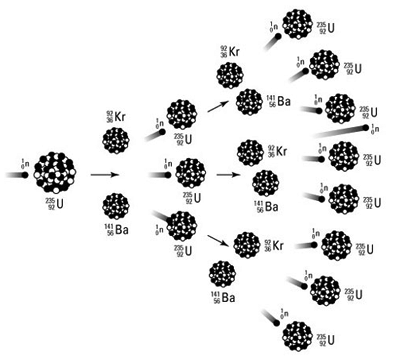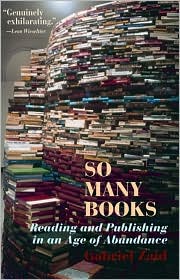B o o k l y f e :: Stretch Edition
-
 Appropriate.
Appropriate.
Jeff Vandermeer, friend to all, shares the journey of his book Finch, from inception to interior layout. I think Jeff is remarkable; he’s prolific AND he spends a lot of time on the internet.
I really look forward to this: The Interview Project, from David Lynch.
A profile of the man who created the much-emulated cliché ‘Hollywood Agent Type’, Irving Lazar.
An interview with William Gass. This one’s so full of good. An excerpt:
As for youthfulness: I value experimentation. In that area I am one of the youngest writers now writing. I smile when I see all these old young people still treating a sentence as if it had been a child of Dick and Jane. A sermon of Donne’s often has more ideas, more energy, certainly more art, than these writer’s entire books. And the meters of Sir Thomas Browne are confounding and should astonish everyone. Age is not a function of time but of mind, the old old old saying goes. Try a novel by the great Spanish writer, Juan Goytisolo. He’ll measure how young you are, not the New Yorker. I recently had to do a retrospective piece. It was a horrible experience. Don’t look back; complete immobility may be gaining on you.
More stuff after the jump.
Booklyfe X, Return of the Booklyfe, Booklyfe Must Die

Really disturbing.
So much internet today. I don’t even know how to start. Let me say, though: There’s too much to here for me to distill & tease with quotes from the individual articles, so please have faith and click through to the pieces. It’s all very good. Let’s jump in:
Over at The Millions, the venerable Garth Risk Hallberg has posted the first installment of a three part series talking about the future of literary journalism, i.e. book coverage, titled Part I: R.I.P., NYT? This is a really smart piece of criticism; it defines ‘the problem’/offers solutions/peers into the future. I look forward to the rest. Plus, it includes shoutouts for The Rumpus and The Quarterly Conversation, two of my favorite sites, so, Word.
And here’s an interview with N Frank Daniels at Dogmatika. Really interesting interview. Daniels originally self-published his first novel, and marketed it creatively, and then was signed a two book deal with Harper Perennial. And I have to say: Dogmatika is housing some of the best author interviews I’ve read. Great job, folks.
More after the jump.
BetterWorld Books / Dogoodery

The hands are holding the planet in space.
From BetterWorldBooks.com:
We’re breaking new ground in online bookselling. We believe that education and access to books are basic human rights. That’s why books sold on BetterWorldBooks.com help fund high-impact literacy projects in the United States and around the world.
All books are available with free shipping to any location within the United States (or $3.97 worldwide). And in case you’re concerned about your eco-footprint, every order is shipped carbon neutral with offsets from Carbonfund.org.
Here’s the best part: In addition to selling new titles, Better World Books supports book drives and collects used books and textbooks through a network of over 1,600 college campuses and partnerships with nearly 1,000 libraries nationwide. So far, the company has converted more than 11 million donated books into $4.5 million in funding for literacy and education. In the process, we’ve also diverted more than 6,000 tons of books from landfills.
That’s right. Free US shipping, cheap international shipping, new & used books, ecologically-conscious shipping, $$$ to charity, and they work with schools/libraries. Oh, and from a quick search of five books in my ToRead list, they have multiple copies of each.
Alright. What’s to like about Amazon anymore?
Three Things I’ve Found Interesting Within the Sphere of ‘Booklyfe’, or: Booklyfe 3

This is what all talent/literary/federal agents look like. It's code.
1. Literary agent Nathan Bransford of Curtis Brown, Ltd. is offering readers the chance to play Literary Agent for a Day over at his blog. It’s pretty simple: Read the posted queries, pick the queries you think belong to books about to actually be published, win ______ (he hasn’t specified the prize).
2. Via Matt Briggs, an essay from Frederick Barthelme published in 1988. I’m sure quite a few of you have read this already, but I hadn’t. I think the essay is definitely worth talking about, still.
3. Interview Magazine writes about Five Dials, a .pdf/email distributed literary journal. Hey, who knew this interweb thing could be used for like, literature and stuff?
I’ve already blabbed about this stuff elsewhere, if you’d like a quicker river.
Has anyone read this?
Has anyone read this book? It comes recommended by Stanley Crawford. I’m hoping to cull a concise summary from someone here so I can avoid buying it. Ahh, the irony.
Also: You can look forward to an HTMLGiant contest/giveaway. Big and soon.
Booklyfe 2

Literary Multiplier / Critical Mass
And here’s Norman Lock on small presses & print vs. digital, via Eugene Lim’s wonderful blog.
A select bit from Norman, and my thoughts:
…To acknowledge such a limitation is to accept a reduced role for the writer. I do not believe that what I write can change the world or the people in it. I don’t believe that anything written by a contemporary literary artist has that power over a mass audience. There are some who believe they can restructure consciousness using language and narratives that defy convention. But their visionary writing will scarcely be read by the people most in need of a transformed consciousness. The only work that has power to engage a mass audience is sentimental (which is a lie) or pornographic (which is also a lie, though perhaps a more entertaining one). We can rue this. We can set down the causes to mainstream publishing or to a degeneration in popular taste and appreciation that have little to do with literacy. But we can and should seek out our own margin and make our literature there.
BookLyfe, or Compendium #1

Millions crushed underneath.
Hello everyone. Pappy Blake Butler has allowed me to talk out loud a bit, and for that I am grateful. I hope to not bug the hell out of everyone here at HTMLG.
I’ve gleaned a lot of booktalk from the internet in the past week or so, and I’ll present it here, all at once. To start: Over at the Vroman’s Bookstore blog, Patrick Brown discusses the National Book Critics Circle’s recommended reading list. Patrick says:
…their recommended list leaves a bit to be desired. It’s not that the books on the list aren’t good — they are — it’s that they’re, well, a little obvious. My friend Cory, blogger at Skylight Books in LA, pointed out that Philip Roth made the list. Looking at the fiction list, I feel a little like Jack Black’s character in High Fidelity, “Philip Roth? Not obvious. No, not obvious at all. Come on, NBCC, couldn’t you make it easier? What about Hemingway? How about William Shakespeare? Why not recommend Hamlet?” I don’t mean to hammer on Philip Roth, who I love, but come on. Does he really need the readers?

